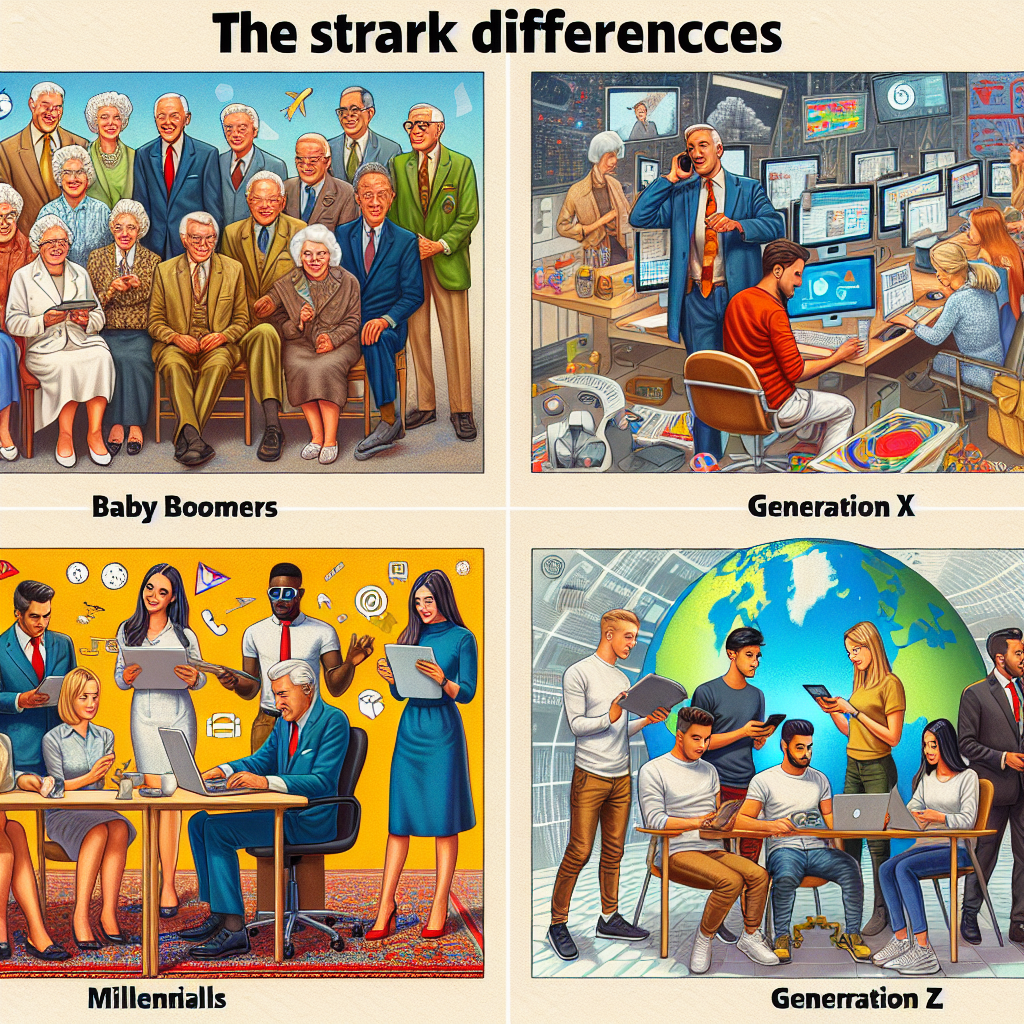Differences between Generations: Comparison and Analysis
Generations are defined by cultural differences, attitudes and behaviors that evolve over time. These discrepancies are formed due to technological, economic, political and social changes. In this article, we will explore the different aspects that mark the differences between generations and how they influence the relationship between children and parents.
Evolution of Generations and Impact on Education
Education is an area where generational differences are remarkably visible. From traditional education methods to modern and computerized ones, the changes are palpable. Baby Boomers and Gen X had a style of education based on strict respect for authority and rote learning. In contrast, Generation Y (Millennials) and Generation Z benefit from interactive education and technology that fosters critical thinking and creativity.
Older generations might consider education a privilege, while for the new ones, it is a necessity and is much more accessible. Obviously, the change in the educational paradigm changes the way parents and children relate to the learning process.
Family Relations and Generational Values
Family values have also undergone significant transformation over the generations. Earlier generations valued extended family and interdependence, while newer generations emphasize individualism and autonomy. This led to changes in family dynamics, often causing misunderstandings and conflicts.
Traditional values such as respect for elders and strict discipline are now mixing with new trends of permissive parenting and acceptance of diversity. Mutual understanding and respect for distinct generative values is essential for a healthy and balanced family relationship.
Technology and Generational Distance
Technology is perhaps the biggest gap between generations. Parents and grandparents grew up in a world where technology was still in its infancy, while today's children and youth are digital natives. This technological discrepancy can be a reason for division, but also a bridge between family members of different ages.
Generation Z, for example, is incomparably connected through mobile devices, social media and online games. This aspect can be seen by parents as an obstacle to communication or as an opportunity to connect with children on common ground.
Social Awareness and Changes in Perception
Social awareness and activism are distinct characteristics of the new generations. While Baby Boomers and Gen X were more focused on stability and preserving the status quo, Millennials and Gen Z are often engaged in social and political movements, demonstrating for civil rights, social justice and climate change.
This change has a major impact on general perception, with new generations often being labeled as sensitive or enthusiastic. But what some of the older generations may interpret as disrespect for authority may actually be a manifestation of a developed social consciousness and a desire for positive change.
Economy and Financial Stability
Baby Boomers and a portion of Generation X often had the opportunity to obtain stable jobs immediately after completing education and a relatively clear path to retirement. For Millennials and Gen Z, the economic landscape is much more uncertain, with a fluctuating job market and heightened concerns about financial security.
This financial insecurity is changing paradigms regarding the independence of young adults and their relationship with their parents. There is a growing tendency for young people to live with their parents until old age, out of economic necessity rather than tradition or personal preference.
Conclusion
Understanding the differences between generations is essential to build effective communication bridges between parents and children and to facilitate adaptation to the constant changes of society. Each generation comes with its own unique challenges and characteristics, but also with valuable lessons that can help improve intergenerational relationships.
As a specific action, you can visit the parenting section of our website to explore a variety of resources that can help you better understand and adapt to the particularities of each generation. It is also important to mention about subscribing to our newsletter, which provides practical advice and up-to-date information for parents and educators.
In conclusion, let's celebrate generational differences as a source of diversity and learning, and strive to use our knowledge to build a more understanding and connected world.














































































































































